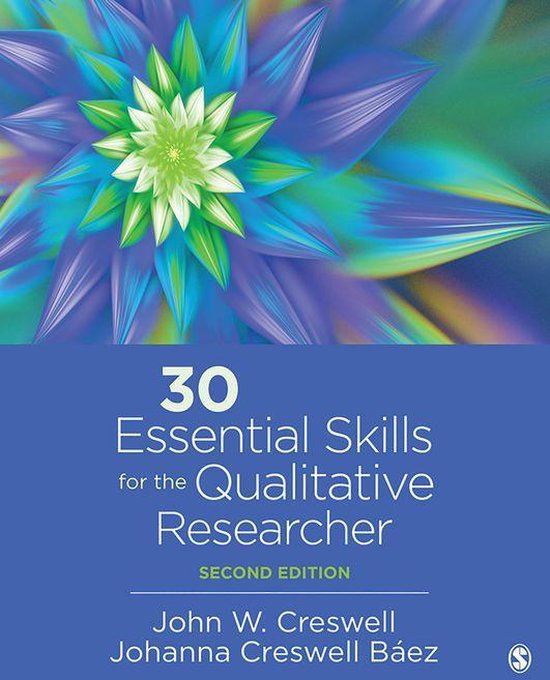The Second Edition of 30 Essential Skills for the Qualitative Researcher provides practical, applied information for the novice qualitative researcher, addressing the "how" of conducting qualitative research in one brief guide. Author John W. Creswell and new co-author Johanna Creswell Báez draw on many examples from their own research experiences, sharing them throughout the book. The 30 listed skills are competencies that can help qualitative researchers conduct more thorough, more rigorous, and more efficient qualitative studies. Innovative chapters on thinking like a qualitative research and engaging with the emotional side of doing qualitative research go beyond the topics of a traditional research methods text and offer crucial support for qualitative practitioners. By starting with a strong foundation of a skills-based approach to qualitative research, readers can continue to develop their skills over the course of a career in research.
This revised edition updates skills to follow the research process, using new research from a wide variety of disciplines like social work and sociology as examples. Chapters on research designs now tie back explicitly to the five approaches to qualitative research so readers can better integrate their new skills into these designs. Additional figures and tables help readers better visualize data collection through focus groups and interviews and better organize and implement validity checks. The new edition provides further examples on how to incorporate reflexivity into a study, illuminating a challenging aspect of qualitative research. Information on writing habits now addresses co-authorship and provides more context and variation from the two authors.
